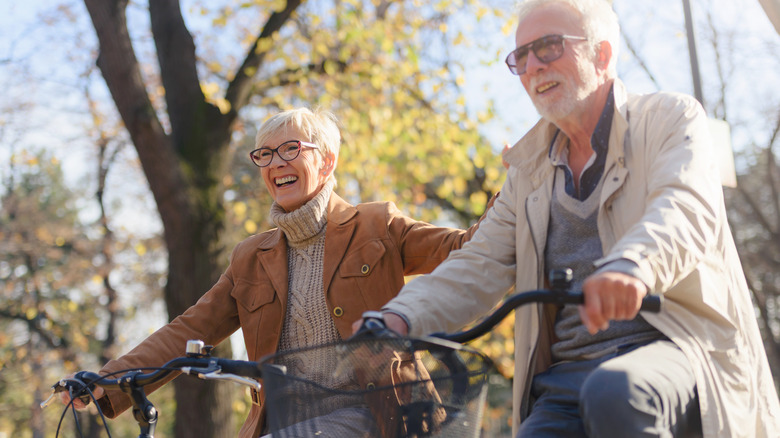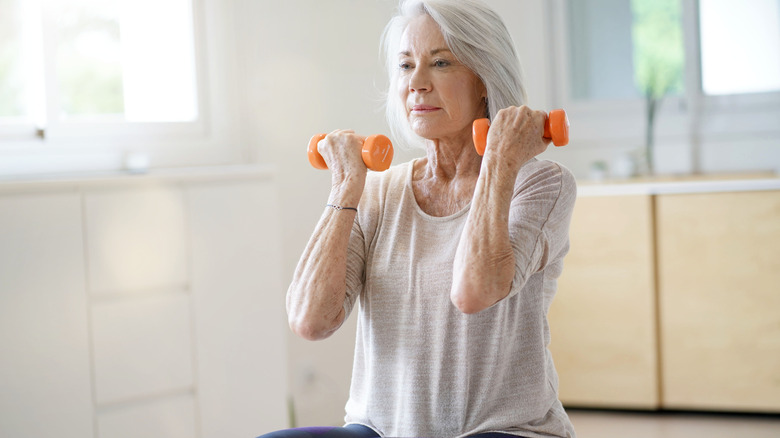Can You Ever Be Too Old To Exercise?
Aging is a part of life, and your body will undergo some changes as you get older. You might expect to see wrinkles and gray hair, but other changes that you can't see take place too. For example, muscle mass is known to shrink with age, and this can cause weakness, according to MedlinePlus. For this reason, you might not be as strong as you were when you were younger.
Bones also become more fragile with age, and this could cause them to break more easily. Joints wear down over time, and you might find that they hurt more than they used to. In fact, older women are susceptible to osteoporosis, but both men and women are prone to developing arthritis. These changes might make you think that you should slow down and not exercise to avoid breaking a bone or experiencing some other kind of injury. But are you ever really too old to exercise?
Exercise is good at any age
If you think you can ever be too old to exercise, think again. The American Council on Exercise (ACE) reports that most older adults are injured from inactivity rather than from being active. In fact, flexibility, strength, and balance improve when you exercise and are essential to living a full life. More importantly, MedlinePlus points out that exercise is one of the best ways to avoid any bone, muscle, and joint problems because it helps keep them strong. And stronger bones mean fewer fractures.
The National Council on Aging (NCA) reports that engaging in a regular exercise program can prevent bone loss. Strength training, especially, offsets the bone loss you incur as you get older. It might sound counterintuitive, but exercise can even relieve osteoarthritis pain. The best type of exercises for arthritis includes low-impact cardio, lifting weights, and range-of-motion exercises, which will strengthen joints and muscles.
Exercise lowers your risk of cognitive decline
Besides stronger bones and muscles, your brain also benefits from exercise. Approximately 55 million people have dementia worldwide, and that number is expected to rise to 139 million by 2050 (via the World Health Organization). One way you can decrease your odds of developing any form of cognitive decline is through physical activity. One 2021 study suggests that moderate to vigorous physical activity can boost your mental health. In fact, even regular bouts of light exercise are beneficial to the brain.
If you've never been much of an exerciser, that's okay. It's never too late to start. The National Institute of Aging (NIA) states that becoming physically active is one of the best choices you can make when it comes to your health. The most important thing to remember is to start slowly with a program that is low-intensity and ease your way into it. Warming up and cooling down are important, and ACE notes that older people may need to take longer for each. To be on the safe side, you should consult with your doctor before beginning any type of exercise program.



